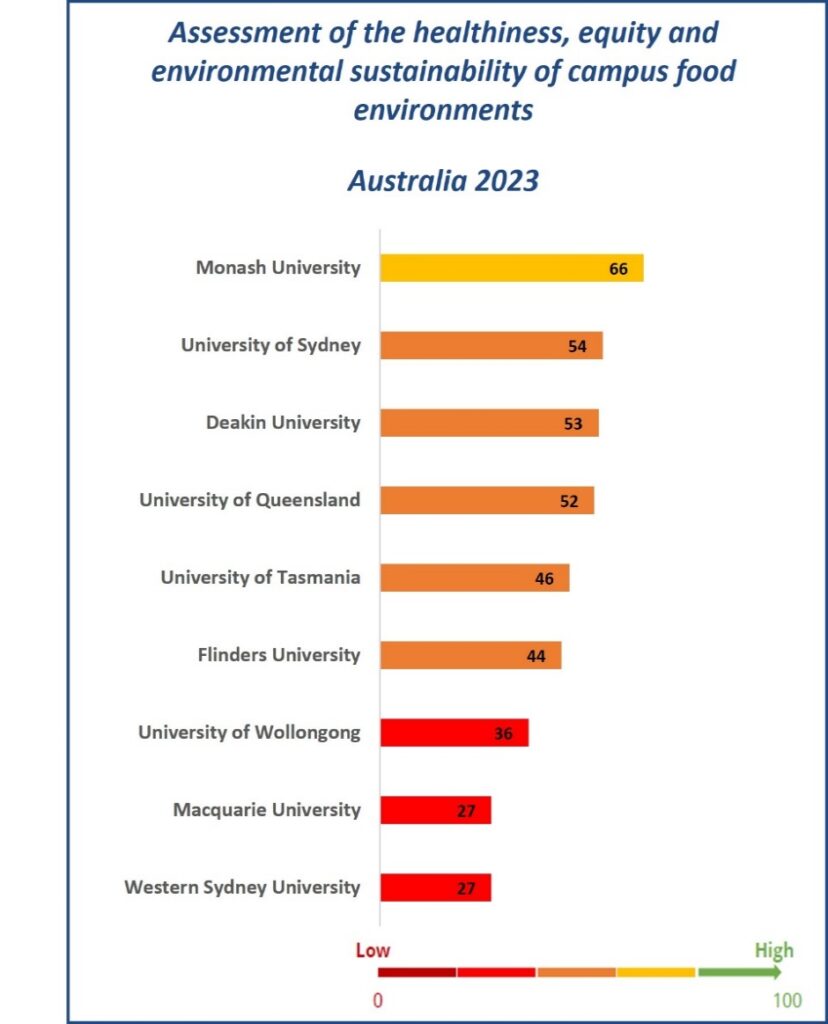A new scorecard reveals that Australian universities are failing to promote healthy and sustainable food environments on campus.
Deakin University’s Global Centre for Preventative Health and Nutrition (GLOBE) released its Uni-Food 2023 report yesterday, benchmarking the healthiness, equity and environmental sustainability of university food environments in Australia.
Globe Co-Director Professor Gary Sacks said he was disappointed by the results in the report and that universities need to do more to improve the campus food environments.
“University campuses have an important influence on the diets of students and staff,” Professor Sacks said.
“Historically, they have been some of the first organisations to support young people’s health. For example, by implementing policies such as ‘smoke-free campuses.’
“Universities are in a position to showcase a healthy and environmentally sustainable environment, and demonstrate the health, environmental and financial benefits of doing so.”
Nine universities across Victoria, Tasmania, Queensland and New South Wales opted into the assessment in 2021/2022 and were scored on the healthiness, equity and environmental sustainability of their campus food environments.
The average score of all nine Australian universities was just 46 out of 100 points, with Monash University topping the list with a score of 66 out of a possible 100 points.
“We found some strong examples of universities working to improve their food environments by reducing food packaging, ensuring vending machines only sell healthy food, offering nutrition counselling and creating community gardens, but none of these initiatives go far enough to score well on our scorecard,” Professor Sacks said.
“Most universities lack comprehensive policies and commitments to make the necessary improvements to their food environments.
"Universities pay a lot of attention to where they rank against each other on research and teaching. These scorecards provide further opportunities to show leadership,” Professor Sacks said.
Key recommendations for universities to improve their score include limiting the availability and marketing of unhealthy foods and beverages and ensuring on-campus food retail outlets provide affordable, healthy and environmentally sustainable foods.
Do you have an idea for a story?Email [email protected]
 Campus Review The latest in higher education news
Campus Review The latest in higher education news


